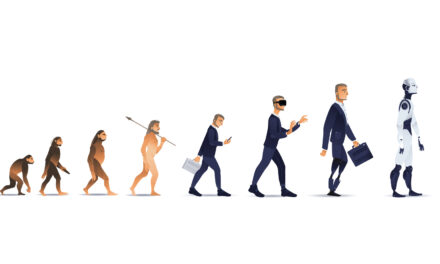
The Future of … Privacy at Risk – How the Internet Exposes You
Smart TVs, security systems, fitness and health wearables, and networked appliances may be making life more convenient and efficient, but the Internet exposes you and a growing number of Americans to unwarranted privacy intrusions and cybersecurity risks.
To view the full article please register below:
The Future of … Privacy at Risk – How the Internet Exposes You
Your home has always been your safe space; inside those walls, you and your family found refuge and privacy. This safe space is swiftly eroding, thanks to the rise of the home Internet of things. Smart TVs, security systems, fitness and health wearables, and networked appliances may be making life more convenient and efficient, but the Internet exposes you and a growing number of Americans to unwarranted privacy intrusions and cybersecurity risks.
Sources of Privacy Risk
As Americans are increasingly discovering, individuals surrender control over personal data that are gathered through the use of Internet-connected products, from their Internet searches to the streaming programs they watch.
In one study of 81 different smart devices and their data-sharing activities, 72 of the studied Internet of things (IoT) devices shared data with unrelated third parties, some of which were based overseas. The data they shared were fairly wide-ranging, and included location data and usage habits.1
Moreover, of the 81 studied devices, 30 of them shared data without any data encryption, increasing the odds of personal data being stolen by bad actors.2
Another study, conducted by professors at Princeton University and the University of Chicago, focused on smart TVs and Internet streaming devices. They discovered that 97.5 percent of Roku channels had installed Google’s ad tracking software, while 68.7 percent of Amazon Fire TV channels had installed Amazon’s own tracker software.3
Sacrificing Privacy
Most people believe that they should have the ability to determine what personal information can be collected, and how it is used and shared. Consumers may have accepted business models that provide a service for free in exchange for personal information (e.g., Facebook), but few expect that a company should collect personal data when a product or service, such as an Internet-based home security system or a video streaming subscription, is being purchased with hard dollars.
The danger to personal privacy doesn’t end there. With so much information stitched together (e.g., home PC, smart phone, home monitoring system), it becomes much easier for cyber criminals to access personal networks and view banking information, retrieve social security numbers and passwords, and peek into other private details.
To be sure, it’s unlikely a hacker is going to pick a single home to commit a cyber crime, but with information increasingly stored on the cloud, a hack into that cloud becomes more dangerous than ever to every American’s personal privacy.
Sources:
- https://moniotrlab.ccis.neu.edu/wp-content/uploads/2019/09/ren-imc19.pdf
- https://moniotrlab.ccis.neu.edu/wp-content/uploads/2019/09/ren-imc19.pdf
- https://www.princeton.edu/~pmittal/publications/tv-tracking-ccs19.pdf
Please reference disclosures: https://blog-dev.americanportfolios.com/disclosures/












